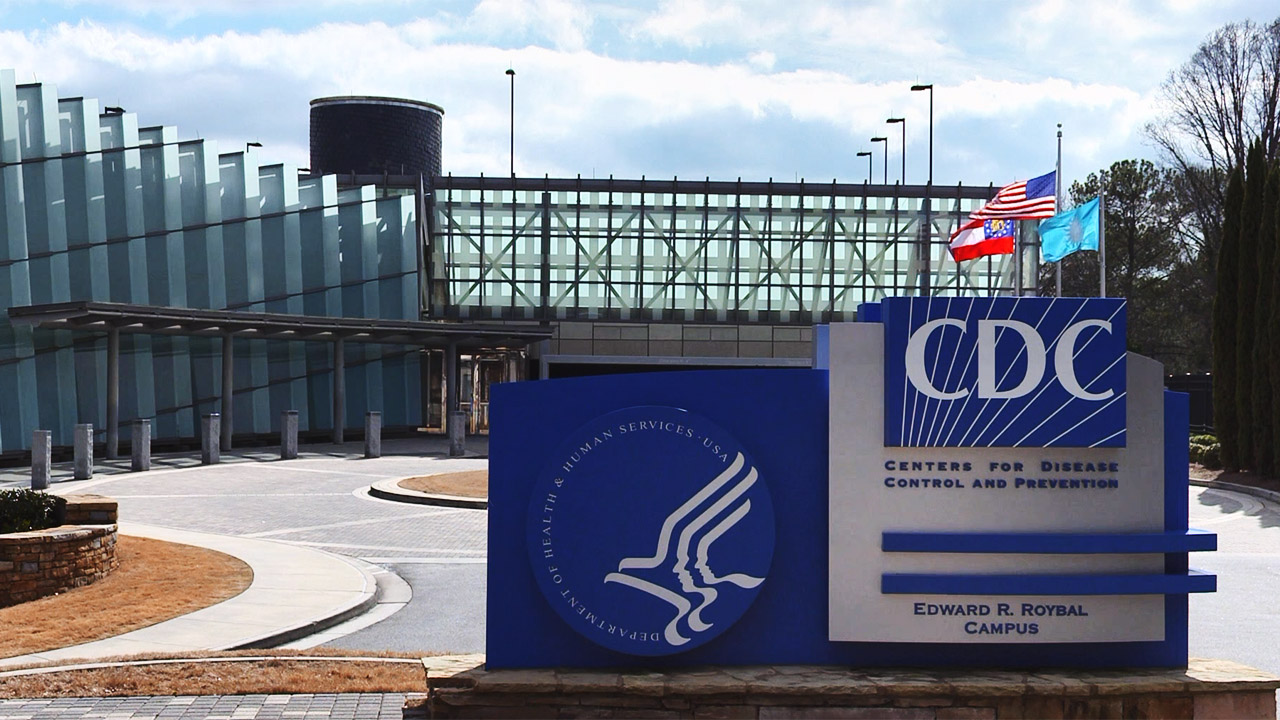Health
National news in brief
Westboro says funeral protests are protected & more

Westboro says funeral protests are protected
BALTIMORE — The fundamentalist church that picketed the funeral of a Marine killed in Iraq with anti-gay signs argued last week that its actions were protected by the First Amendment.
According to the Associated Press, an attorney for the Westboro Baptist Church submitted a 75-page brief July 7 to the U.S. Supreme Court, which will hear arguments in a lawsuit against the church this fall. Albert Snyder of York, Pa., says that the church’s free-speech rights did not trump his right to peacefully assemble for his son’s funeral.
The Topeka, Kan.-based church believes that U.S. military deaths are God’s punishment for tolerance of homosexuality. Founder Fred Phelps and six of his relatives picketed the 2006 funeral of Lance Cpl. Matthew Snyder in Westminster, Md., carrying signs that read “Thank God for Dead Soldiers” and “You’re Going to Hell,” among other statements.
Attorney Margie Jean Phelps, the church founder’s daughter, will argue the case before the Supreme Court. She argued in her brief that Westboro did not disrupt the funeral in part because its protest was 1,000 feet away from the church, on a public street. Snyder did not see the protesters and could not read their signs during the funeral, but was aware of their presence.
“He was able to go to and leave the funeral without any slightest disruption or interference,” Phelps wrote. “WBC was out of sight and sound; maintained a very reasonable distance; acted peacefully and engaged in no disruption or intrusion. … This is the wrong case to decide whether there is a privacy interest in a funeral.”
Phelps also argued that the church was engaging in public speech on a matter of public concern; that the funeral was a public event; and that the church did not assert provable facts but instead expressed “hyperbolic, figurative, loose, hysterical opinion.”
In 2007, a jury found against Westboro and awarded Snyder nearly $11 million as compensation for emotional distress and invasion of privacy. That award was later reduced and then overturned by a court of appeals.
The Associated Press reported that the Supreme Court agreed in March to take the case, and the justices will hear arguments during the court’s next term, which begins in October. Forty-eight states and the District of Columbia submitted a brief in support of Snyder. The states argued they have a compelling interest in protecting the sanctity of funerals.
Mormon church restates opposition to gay marriage
SALT LAKE CITY — Mormon church leaders have restated the faith’s unequivocal position against same-sex marriage in a letter to members in Argentina, where the government is debating whether to legalize gay unions.
“The doctrine of The Church of Jesus Christ of Latter-day Saints is absolutely clear: Marriage is between one man and woman and is ordained of God,” said the July 6 letter from church President Thomas Monson, according to the Associated Press.
A copy of the letter and its English translation began circulating over the weekend on websites for former Mormons.
Church spokeswoman Kim Farah on Monday confirmed the letter was sent to local leaders in Argentina, where the faith has more than 371,000 members, according to a 2010 church almanac. The country’s population is more than 41 million.
Argentina’s Senate is debating whether to approve either gay marriage or a civil union law. The country’s other legislative body — the House of Deputies — approved same-sex marriage legislation in May. President Cristina Fernandez has promised not to veto the measure if it reaches her desk.
150 residents moved out of hot Md. nursing home
BALTIMORE — Maryland health officials said last week they were moving all 150 residents, including some living with HIV/AIDS, out of a Baltimore nursing home after operators didn’t report a broken air conditioner for three days.
Nancy Grimm, director of the state Office of Health Care Quality, says officials believe the air conditioner stopped working sometime July 3. But the state wasn’t aware until a resident called 911 early July 6, the Associated Press reported.
When health officials arrived at the Ravenwood Nursing and Rehabilitation Center, it was 91 degrees inside.
Grimm said no residents suffered health complications related to the heat. Most of the residents are under 65 and suffer from a variety of conditions, including paralysis and HIV/AIDS.
Grimm said the state is investigating the nursing home’s failure to report the problem.
Health
UNAIDS to commemorate Zero Discrimination Day’s 10th anniversary
UN agency urges global action to protect human rights

As the world marks the 10th anniversary of Zero Discrimination Day; UNAIDS is sounding the alarm on the increasing threats to human rights, calling for renewed efforts to protect the rights of all individuals as a fundamental step towards ensuring health for everyone.
Established by UNAIDS a decade ago, Zero Discrimination Day aims to promote equality and fairness regardless of gender, age, sexuality, ethnicity or HIV status. The progress achieved over the past years is now in jeopardy, however, due to rising attacks on the rights of women, LGBTQ people and other marginalized communities.
UNAIDS Executive Director Winnie Byanyima emphasized the critical link between protecting human rights and safeguarding public health.
“The attacks on rights are a threat to freedom and democracy and are harmful to health,” she said in a press release. “Stigma and discrimination obstruct HIV prevention, testing, treatment and care and hold back progress towards ending AIDS by 2030. It is only by protecting everyone’s rights that we can protect everyone’s health.”
Despite challenges, there has been notable progress.
At the onset of the AIDS pandemic more than 40 years ago, two-thirds of countries criminalized consensual same-sex sexual relations. They are now decriminalized in two-thirds of countries. An additional 38 countries around the world have pledged to end HIV-related stigma and discrimination, contributing to positive changes that include 50 million more girls attending school compared to 2015.
To sustain and enhance these advancements; UNAIDS urges global support for women’s rights movements, LGBTQ rights, racial justice, economic justice, climate justice and peace initiatives. By standing with communities advocating for their rights, the U.N. aims to reinforce the collective effort towards a more inclusive and equitable world.
Zero Discrimination Day is observed on March 1.
Events and activities that will take place around the world throughout the month will serve as reminders of the essential lesson and call to action: Protecting everyone’s health is synonymous with protecting everyone’s rights.
“Through upholding rights for all, we will be able to achieve the Sustainable Development Goals and secure a safer, fairer, kinder and happier world — for everyone,” said Byanyima.
Health
New CDC report finds transgender women at higher risk for HIV
More than 1,600 people in seven cities surveyed

The Centers for Disease Control and Prevention issued a new study report this week that revealed that restricted by employment and housing discrimination and lack of access to needed gender-affirming healthcare for transgender women increasing the risk of contracting HIV.
Researchers reviewed data from a 2019-2020 survey, the National HIV Behavioral Surveillance Among Transgender Women, which found that the demographics of HIV/AIDS have been disproportionally high, especially among Black and Latina trans women, who had experienced employment and housing discrimination coupled with lack of access to gender-affirming healthcare.
The Jan. 25 Morbidity and Mortality Weekly Report was based on data studies of more than 1,600 trans women in seven major urban locales. Participants from Atlanta, Los Angeles, New Orleans, New York, Philadelphia, San Francisco and Seattle were chosen by referrals from people and community-based organizations who knew or were part of the local population of trans women.
The study’s researchers noted: “Employment discrimination occurs at the overlapping nexus of poverty, homelessness, incarceration, health insurance, disability, food insecurity and survival sex work. These issues are interconnected.”
The study stated that trans women’s inability to access quality healthcare, including gender-affirming treatment or access to PrEP, and can expose them to potential incarceration as many turn to “survival sex work” and violence, which increases the risk of contracting HIV.
The study’s author’s pointed out: “When economically marginalized transgender women are refused employment, this refusal cyclically contributes to economic hardships. This analysis …demonstrates the importance of transgender women working and living with dignity and without fear of unfair treatment.”
Health
A Whole New Perspective on Well-Being
The Mather’s team recognizes that everyone’s wellness journey is completely unique to their life experiences and influences.

It’s easy to spot the distinctive, elegant silhouette of The Mather, a Life Plan Community for those 62+ opening this spring in Tysons, Virginia. What is not apparent to the naked eye is The Mather’s unique wellness philosophy, which is literally built into the community.
The Mather’s team recognizes that everyone’s wellness journey is completely unique to their life experiences and influences.
Nature is one of the important factors that contribute to well-being. So The Mather is incorporating biophilic design—a design approach to facilitate access to nature or things that replicate natural patterns. This can include interior spaces with sightlines to a garden, choosing natural wood and stone as interior materials, or incorporating fragrant flowers and plants indoors to spark memories and provide tactile opportunities such as gardening.

“Providing biophilic design within interior settings connects residents to the natural world,” says Mary Leary, CEO and President of Mather, the organization behind The Mather. “Research shows that a connection to nature provides positive benefits to mental states and overall well-being. At The Mather, biophilic design is the intersection of buildings and programs with nature in an urban setting.”
“The Mather is attracting a diverse group of older adults,” says Mary. “As a result, we aim to incorporate wellness practices from around the world, including Wyda movement theory of the Celtic Druids, which helps people achieve harmony with nature and contentment through mindfulness.” This holistic regenerative approach is similar to Qi Gong and yoga, while born in a different part of the world. Mather Institute has a special focus on mindfulness to support older adults’ practice of present moment awareness, which can lead to increased overall well-being, compassion, and joy.
A very different example of a wellness offering at The Mather is the Gharieni Welnamis spa wave bed, which uses computer-controlled vibrational therapy and audio frequencies to train the brain to relax. “The bed increases mindfulness, concentration, and creativity—all of which support our mission of creating Ways to Age Well,SM” says Mary.
These and other personalized ways to wellness will ensure that residents of The Mather can choose from seemingly countless ways to focus on their well-being. In other words, the sky’s the limit!
-

 Africa5 days ago
Africa5 days agoCongolese lawmaker introduces anti-homosexuality bill
-

 District of Columbia1 day ago
District of Columbia1 day agoReenactment of first gay rights picket at White House draws interest of tourists
-

 World5 days ago
World5 days agoOut in the World: LGBTQ news from Europe and Asia
-

 Arizona2 days ago
Arizona2 days agoAriz. governor vetoes anti-transgender, Ten Commandments bill











